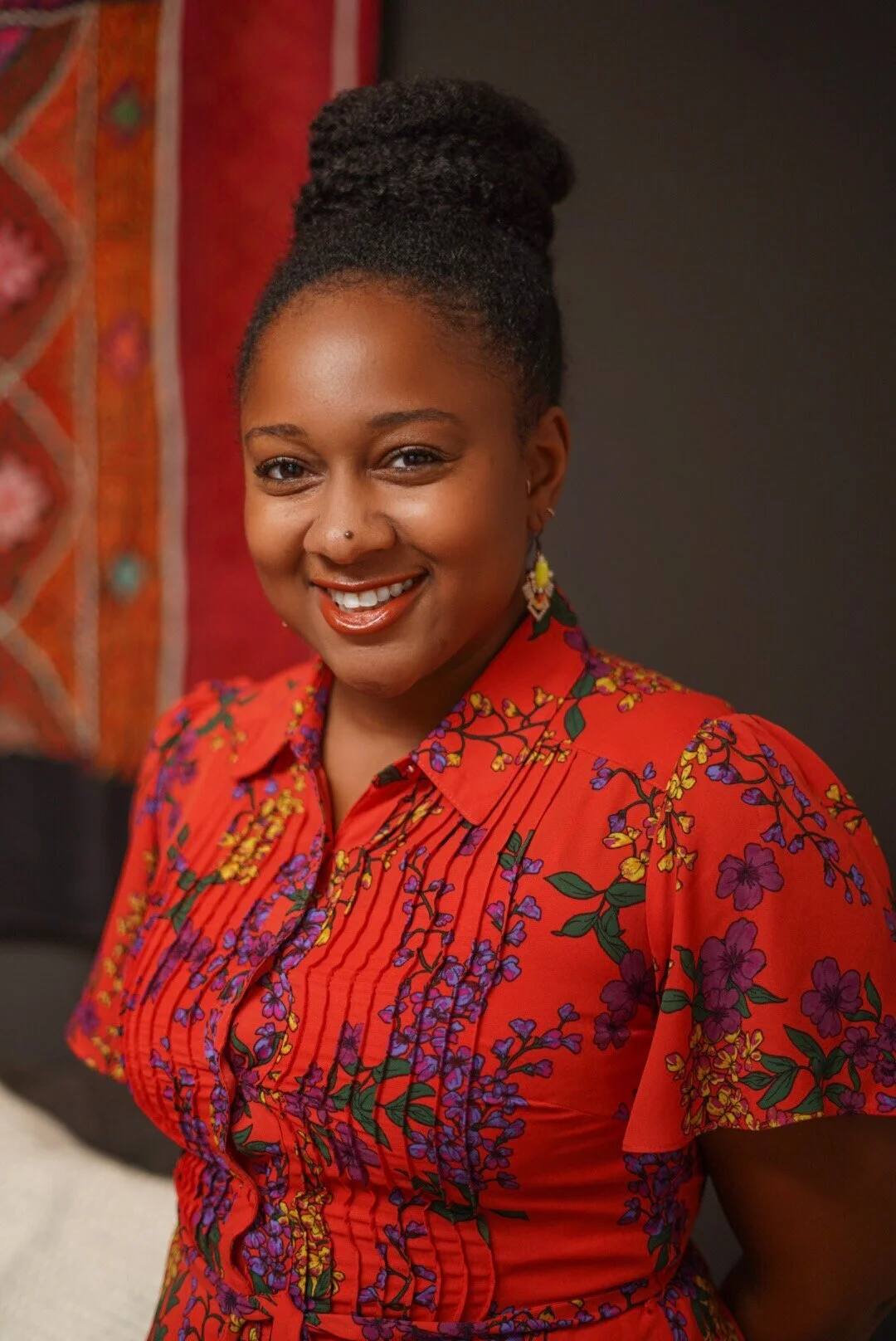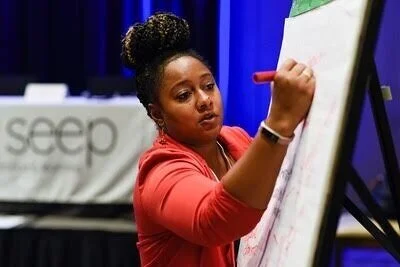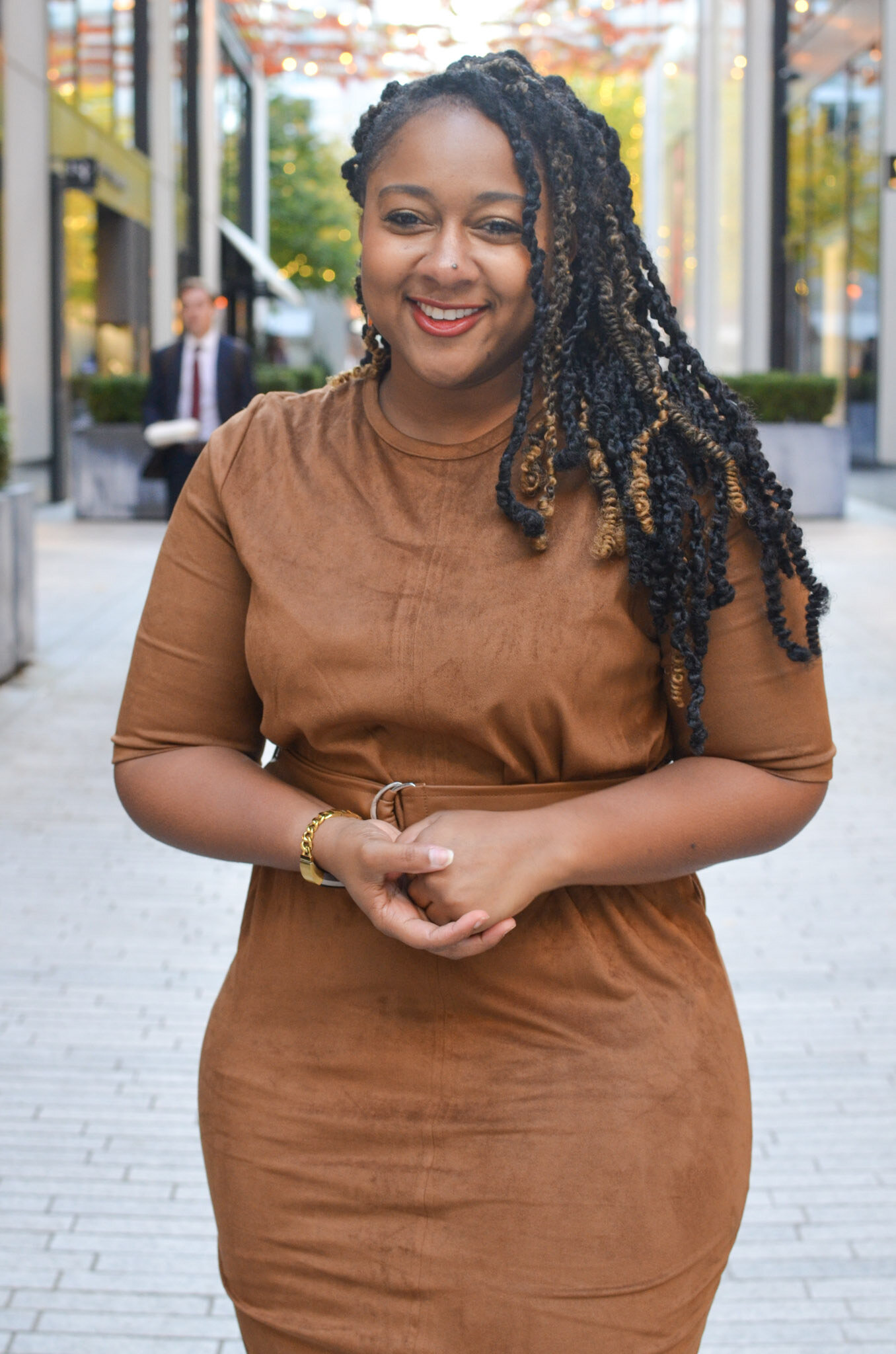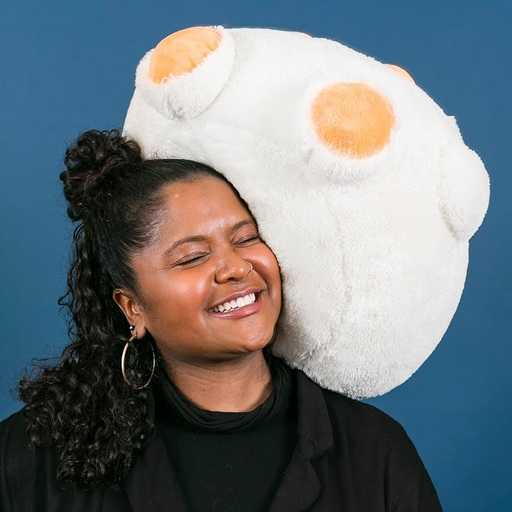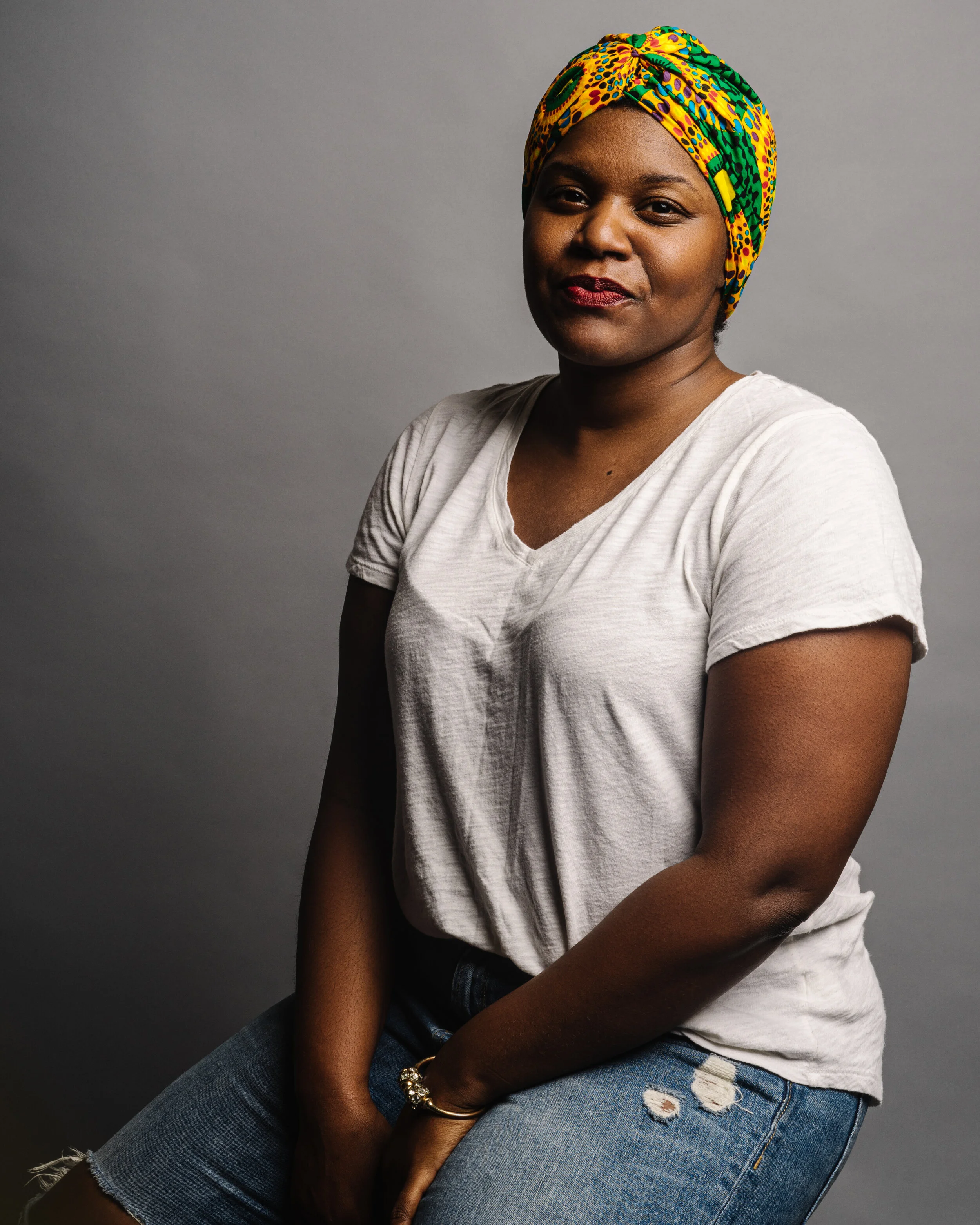Charlin Caster, Communications and Knowledge Manager
Hi, Charlin! Can you share what do you do and how would you describe it in layman's terms?
I’m a communications and knowledge manager with USAID as a contractor. I manage a USAID microsite focusing on economic growth, financial inclusion and market systems development. It’s a website where researchers and practitioners are able to have a central place to share their knowledge on economic growth and other resources. We have learning events, including webinars and seminars. We have a bank of resources and blogs, and a lot of very intentionally curated content. So the website really serves as a hub and provides a space for practitioners to form relationships with others who work in their same space. I manage all of the activities on the site and the program itself, creating new partnerships and alliances with similar platforms around the world.
Wow. It sounds like being in that role is both creative and technical. What is that like?
I have a background in communications, but not so much in technical spaces. I have some framing from school, but a lot of it has been self-taught. I didn’t have a lot of the technical language, but I have gone to conferences, tuned into webinars, and I do a lot of reading to know what’s going on and to get familiar with the space. I also write a lot as part of my work, and it forces me to synthesize information and deepen my understanding.
How did you get into this space?
I’ve always had an interest in doing international work. I was really interested in gender work, exploring the ways in which women are represented in an international space. So I found myself working on women’s economic empowerment. It’s meaningful work, and as for the project management piece, I’ve found that I really have a knack for it.
What do you consider to be most meaningful about the work that you do?
Probably that I’m getting to understand how USAID is approaching international development. There’s been more focus lately on capacity-building in the field and making sure those affected by the work are considered from the beginning. The sector is really trying to strip away the white savior mentality, and extract some of those values that are more reflective of western civilization. I’m not sure how effective it will be in the long run, but I appreciate that the “do no harm” mindset is taking root. People are really starting to consider, what are the unintended consequences of this work? Even though I don’t directly implement projects, I get to share what’s happening, and that feels meaningful.
What makes you uniquely suited to do what you’re doing?
I have good leadership skills. I’m compassionate, I have a big heart. And I have a genuine appreciation for the communities and the people we work with. I don’t want to be a part of a space that’s taking away resources or white-washing cultures because they’re coming from an uninformed place.
I also feel I have the technical skills -- communications and management. And I have vision. I know that I want to revamp the site and make it more user-friendly. I have the foresight to think outside of the box in order to bring in a more diverse audience.
How would you describe your leadership style and how does that influence how you manage others?
I’m someone that seeks to empower others. I want to lead in a way where I’m not just directing, but asking people how they want to evolve. I recently just started managing two people, and I’ve been working with them to bring out their strengths, and to identify areas where they can grow. I’m also learning what does and doesn’t work for me personally in terms of how I’m managed. I don’t like being micromanaged, for example. I’m very communicative. If I’m responsible for producing something, I don’t like people to be in the dark about where that deliverable is. So overall, I just try to be flexible, communicate well and often, and give people the opportunity to shine.
Have you modeled your career after anyone?
A friend of mine is a foreign service officer, so she’s not in development but she is working in the international field. She’s someone who is very pragmatic and poised, she’s firm but gentle. She has also allowed travel and living overseas to shape her and she takes up influences from different cultures. I appreciate that she has allowed her knowledge to be broadened. She isn’t just going around to these different placements trying to assert what we do in the United States. She has a genuine appreciation for societies and communities she’s lived in. I like that she is always in a learning position and allows herself to grow more.
Do you get to travel?
Yes, the first time I traveled for this role I went to South Africa for a conference. I’ve also gone to San Francisco, and Senegal. When I was interviewing, I asked if I’d have a chance to travel and they said at most I’d go to, like, Tampa. So my expectations were low. Then, early on, they asked me whether I wanted to go to South Africa, then an opportunity to go to Senegal came up. I’m excited. I’m always waiting for the other shoe to drop, like they’ll come back and say “Oh, you can’t go.” (laughs)
What do you want to do?
I’d love to get into program design and implementation, and work on a program advancing women and youth in some way. I’m interested in getting into economic empowerment programs focused on those populations. I think I would approach it with a level of respect, and really center service to the community, ensuring our engagement is as beneficial as possible. It really excites me, the thought of doing interviews with different people, running needs assessments, working with the community to determine what would be most helpful.
Are there any trends in your field you’re excited about?
I’m most excited about the emphasis on hiring local actors. For example, if there’s a development job in Tanzania, an NGO would try to have someone from Tanzania in that role and not someone from the United States, or the United Kingdom, or Australia. There are a lot of programs that are training people to run their own businesses. There’s a lot of tech programs that are scaling. And, as I mentioned before, there’s a shift away from the savior mentality towards inclusion and integrating the local community as much as possible.
In terms of the communications field as a whole, how this work is messaged and packaged is also shifting as practices change. Tech is advancing so rapidly, and there are more and more ways to interact and connect with people globally. Social media alone has opened up so many doors. People are digitizing their resources and knowledge databases, and analyzing things and sharing with colleagues around the world. It’s cool, and I’m trying to stay on top of it all. There’s always something new.
Please share this post with a friend, and follow us at @BlackWomenWorkIG!
0 LIKES

